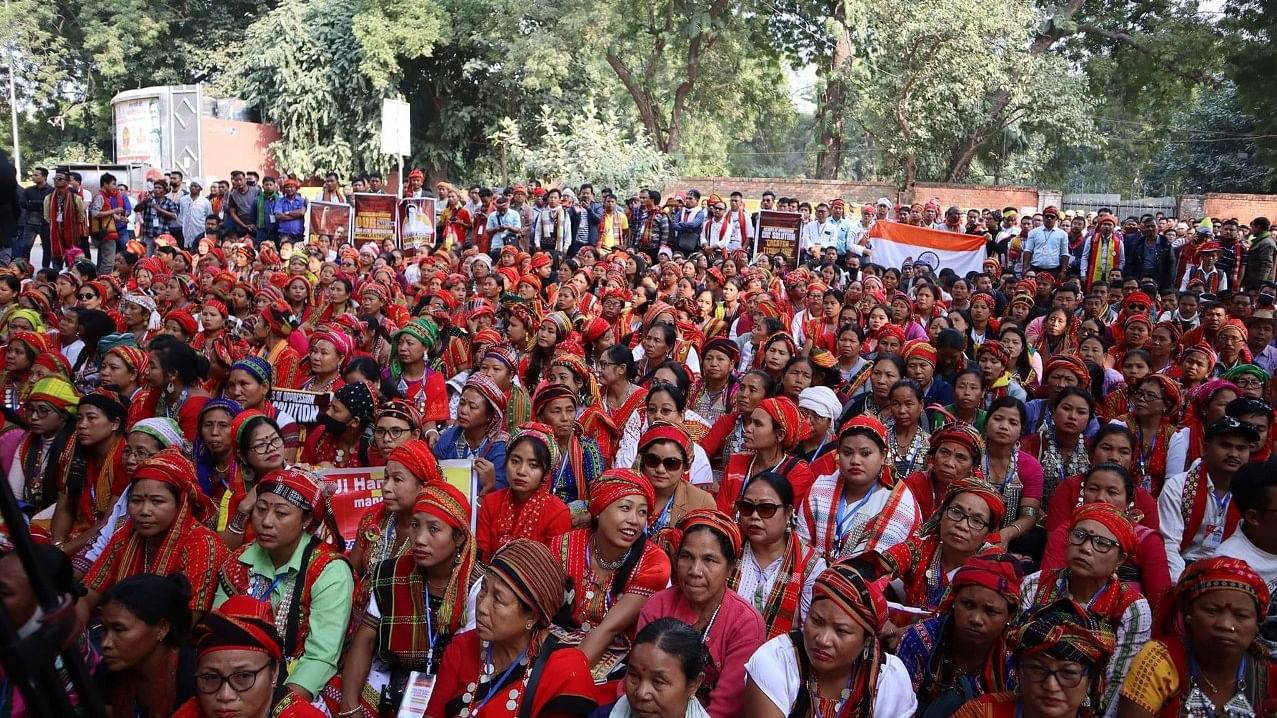
The battle lines for the Assembly elections in Tripura have been drawn, primarily between the promise of "greater autonomy" to the tribal autonomous council by the ruling BJP and the Opposition CPI (M)-Congress combine and the demand for a "Greater Tipraland" state by Tipra Motha, a regional party born out of the anti-CAA agitation in 2020.
While Tipra Motha has made "Greater Tipraland" its main poll plank and rejected the offer for an alliance both from BJP and the CPI (M)-Congress combine without a written assurance on its demand, the ruling BJP's manifesto promised "greater autonomy" to the tribal council with more legislative, administrative, executive powers and financial support while rejecting division of Tripura. The CPI (M) and Congress, who are contesting the elections with a seat-sharing arrangement for the first time in Tripura, in their separate manifestos, have promised efforts to provide "greater autonomy" to the council. The two Opposition parties, however, are against the division of Tripura as demanded by Tipra Motha.
"In the next five years, BJP will work on the motto of DTH, which stands for Development, Transformation and Harmony. We will defeat any attempt to divide Tripura and the society," BJP president J P Nadda said on Thursday while releasing the party's "Sankalp Patra" here at the Rabindra Bhawan.
Fearing a possible challenge from Tipra Motha in at least 21 tribal-dominated constituencies, the BJP manifesto promised a slew of projects including annual financial assistance of Rs 5,000 to the tribals living under the Tripura Tribal Areas Autonomous District Council (TTAADC), a university in the name of Maharaja Bir Bikram Manikya, the last king of the Tripura Princely tribal state and inclusion of Kokborok language (spoken by the tribals) in CBSE and ICSE schools, besides others.
BJP's promises targeting the tribals are aimed at countering the Motha and its demand for Greater Tipraland. "Tipraland has become a non-issue after our manifesto. It has addressed almost all the issues, except the division of Tripura," Deputy CM and BJP's tribal face, Jishnu Deb Barma told DH in an interview minutes after Nadda released the manifesto.
Motha Chief Pradyot Deb Barma, Tripura's Royal scion, however, is firm on his demand for bifurcation of tribal-dominated areas and says the promises made in BJP's manifesto were copied from his party. "We will fight till our last breath for Tipraland," Pradyot said, on Thursday. Jishnu Deb Barma is Pradyot's uncle.
Pradyot, while releasing his party's manifesto said a resolution for Tipraland and another opposing the CAA would be the two major tasks to be implemented within 150 days of coming to power. "The Assembly resolutions will be sent to the Centre as they can only take the decision," he said on February 4. Tipra Motha has put up candidates in 42 out of 60 seats. The party says Tipraland is required as the tribals have become a minority (only 30 per cent now) due to the large-scale migration of Bengalis from neighbouring Bangladesh since Tripura's annexation with India in 1949. The TTAADC was set up in 1982 under the Sixth Schedule of the Constitution following demands by the tribals and fear of losing their ethnic identity. Motha says TTADC is not properly empowered to address the identity crisis and welfare of the tribals.
Jitendra Choudhury, leading the CPI (M), said that the left front would also push the Centre for "maximum autonomy" to the TTADC for the empowerment of the tribals and their welfare, after coming to power. "Tipraland state is not feasible," Choudhury told DH during an interview on February 6. Choudhury, a tribal leader in CPI (M) may become the CM candidate of the left-Congress front.
The offer of cash benefits was another highlight of the manifesto of almost all the parties.